




Welcoming a newborn baby into your life is a joyous occasion that comes with a lot of preparation. One of the essential tasks on every parent’s to-do list is washing newborn clothes. Cleaning your baby’s clothes before they wear them is crucial to ensure their safety and comfort.
But when is the right time to wash newborn clothes? Many parents wonder whether it’s necessary to wash brand new clothes before putting them on their baby. The answer is yes! Even though the clothes might appear clean, they have likely been touched by multiple people and could have come into contact with various chemicals during the manufacturing and handling process.
The ideal time to wash newborn clothes is before your baby arrives. This way, you can have all the clothes ready and organized, making your life easier once your little one arrives. It is also essential to use a gentle, hypoallergenic detergent to minimize the risk of skin irritation for your baby.
Washing newborn clothes before they are worn also helps remove any residual chemicals or irritants that may be present. Plus, by washing your baby’s clothes, you can ensure that they are free from dust, allergens, and other contaminants that could potentially harm your little one.
When should you wash newborn clothes?
Washing newborn clothes before their first wear is an important step to take. It ensures that the clothes are clean and free from any irritants or residue that may have accumulated during manufacturing, packaging, or storage. Here are some key points to consider when determining when to wash newborn clothes:
1. Before the baby’s arrival
It is recommended to wash all newborn clothes before your baby arrives. This allows you to have everything prepared and ready for their arrival. Washing the clothes will also help remove any chemicals or dyes that might irritate your baby’s sensitive skin.
2. Hand-me-downs or second-hand clothes
If you received hand-me-down or second-hand clothes for your newborn, it is crucial to wash them before use. This helps eliminate any germs, allergens, or potential residue from previous use. It’s always best to ensure that any used clothing is thoroughly washed and sanitized.
3. Preemie or premature baby clothes
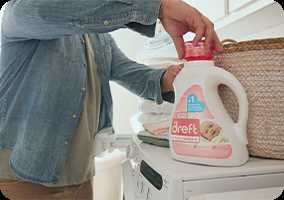
If you are expecting a preemie or premature baby, it’s essential to wash their clothes separately from regular newborn clothes. Preemie clothing tends to be more delicate and requires gentle handling. Washing them with mild detergent and using the delicate cycle can help keep them in good condition and prevent any irritation or discomfort for your baby.
4. Bedding and blankets
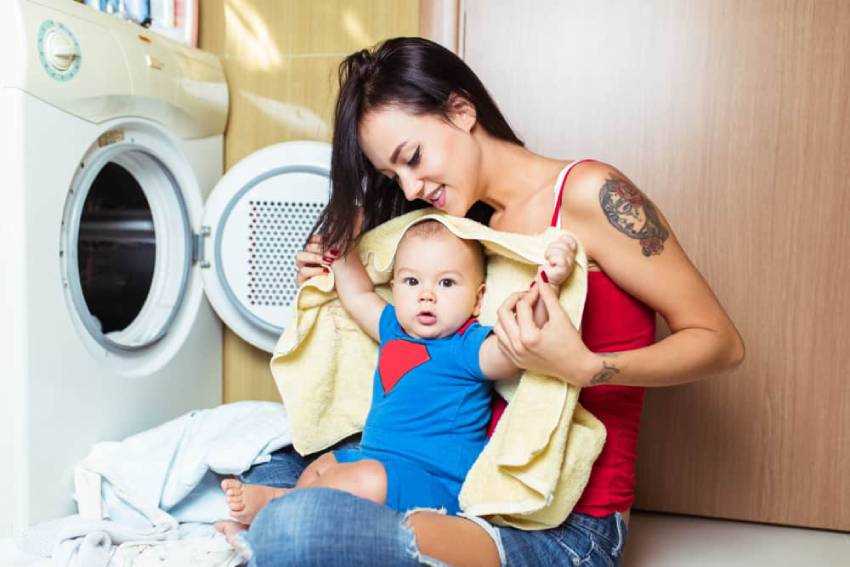
In addition to washing newborn clothing, it’s important to also wash bedding and blankets that will come in contact with your baby’s skin. This includes crib sheets, receiving blankets, swaddles, and any other fabric items that your baby will be in direct contact with. Regularly washing these items helps maintain cleanliness and reduces the risk of any potential allergens or irritants.
5. Regular washing routine
After the initial wash before the baby’s arrival, it is advisable to establish a regular washing routine for their clothes. Newborns tend to go through multiple outfit changes in a day due to spit-ups, diaper leaks, and general messiness. Washing their clothes regularly, using a gentle detergent, and following the care instructions on the clothing labels will help keep their clothes clean and fresh.
By following these guidelines and washing your newborn’s clothes appropriately, you can ensure their comfort, hygiene, and overall well-being.
Importance of washing newborn clothes
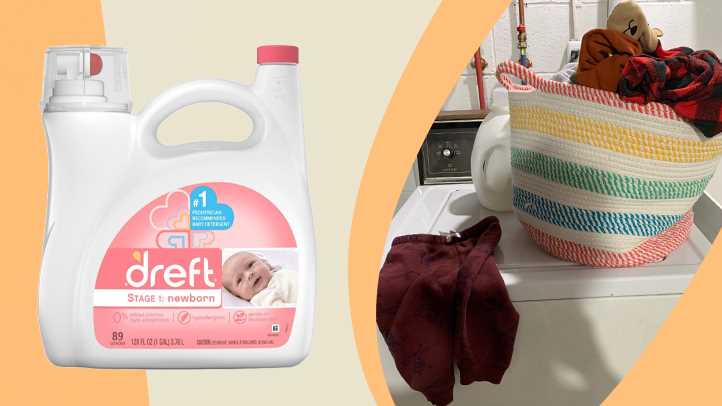
Washing newborn clothes is an essential step in ensuring the health and well-being of your baby. It helps to remove any dirt, germs, chemicals, or irritants that may be present on the clothes, which can potentially cause skin rashes, allergies, or other health issues. Here are a few reasons why washing newborn clothes is important:
Maintaining cleanliness
- It is important to wash newborn clothes before they are worn for the first time to ensure that any dust, residues, or manufacturing chemicals are removed.
- Newborns have delicate and sensitive skin, so washing their clothes helps to eliminate any potential irritants that could cause rashes or allergic reactions.
- Regular washing of baby clothes helps to maintain cleanliness and ensure that they are free from any dirt or bacteria that may accumulate throughout the day.
Removing germs and bacteria
- Newborns have a developing immune system, so it is crucial to keep their environment as germ-free as possible.
- Washing newborn clothes with a mild detergent can help to remove bacteria, viruses, and other harmful microorganisms that may be present on the clothes.
- This reduces the risk of your baby coming into contact with pathogens that could cause illnesses or infections.
Preventing skin irritations
- Washing newborn clothes before they are worn can help to remove any chemicals or substances that may have been used during the manufacturing or shipping process.
- These chemicals, such as dyes, finishing agents, or softeners, can cause skin irritations or allergies in babies with sensitive skin.
- By washing the clothes, you can ensure that only clean and safe fabrics come into contact with your baby’s delicate skin.
Ensuring comfort

- Washing newborn clothes regularly helps to keep them soft, clean, and comfortable for your baby.
- Accumulated dirt or stains can make the clothes feel rough or uncomfortable against the baby’s skin.
- Keeping the clothes clean and fresh allows for a cozy and cuddly experience for your little one.
Overall, washing newborn clothes is an important practice that contributes to the overall health, comfort, and well-being of your baby. It helps to maintain cleanliness, remove germs and bacteria, prevent skin irritations, and ensure maximum comfort for your little one. By following a regular washing routine, you can provide a safe and healthy environment for your newborn.
Preparing newborn clothes before birth
Preparing newborn clothes before birth is an important task for expectant parents. It ensures that the baby will have clean, comfortable, and properly sized clothing once they arrive. Here are some steps to follow when preparing newborn clothes:
1. Wash all clothes
It is important to wash all newborn clothes before they are worn. This helps to remove any dirt, chemicals, or irritants that may be present on the fabric. Use a gentle laundry detergent that is suitable for sensitive skin.
2. Sort clothes by size
Sort your newborn clothes by size to keep them organized and make it easier to find the right outfit when needed. Label each size group using dividers or labels, so they are easily identifiable in your baby’s wardrobe.
3. Check for loose threads or buttons
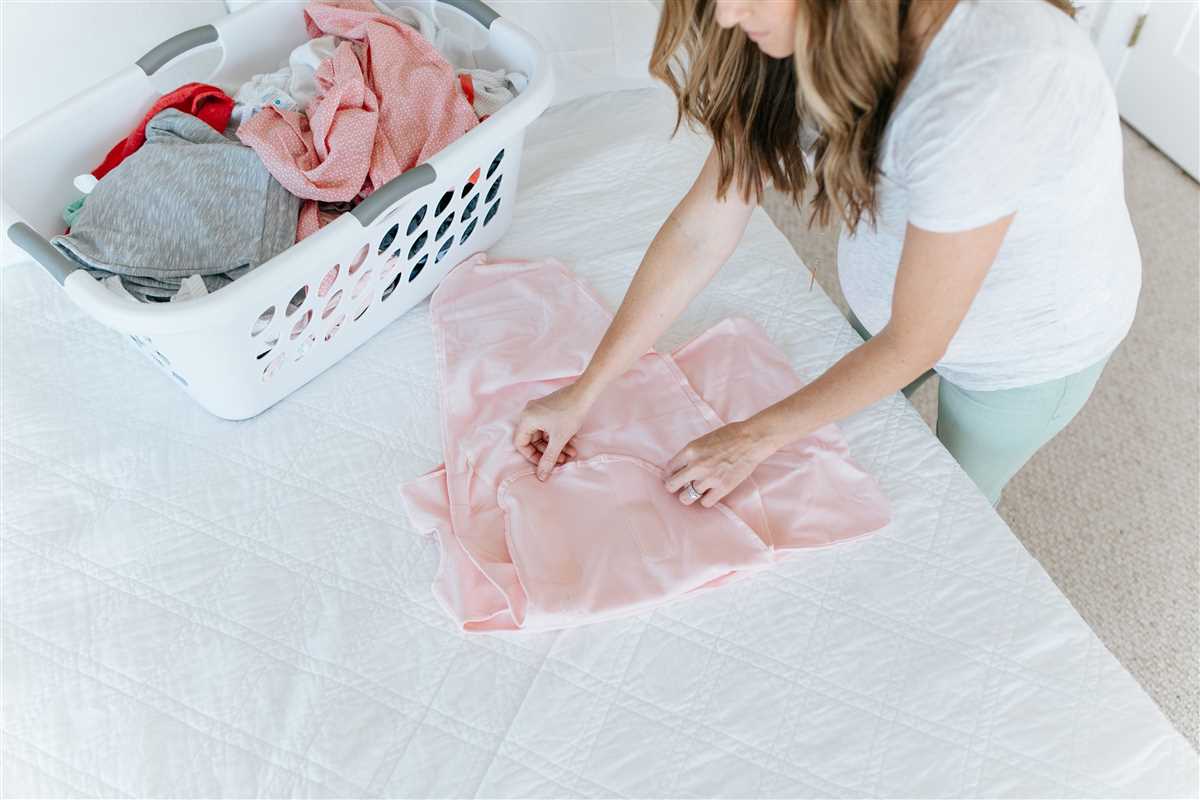
Inspect each newborn garment for loose threads, frayed edges, or loose buttons. Cut off any loose threads and repair any buttons to ensure that the clothing is safe for your baby to wear.
4. Consider the weather
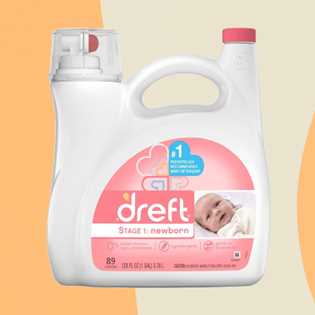
When preparing your newborn clothes, consider the weather and the season during which your baby is due. If it’s summer, include lightweight, breathable fabrics and short-sleeve outfits. If it’s winter, include warm layers and long-sleeve clothes.
5. Organize clothes by type
Organize the newborn clothes by type to make it easier to find what you need. Separate bodysuits, sleepers, pants, and other items into different sections of your baby’s wardrobe or dresser.
6. Keep a few essentials nearby
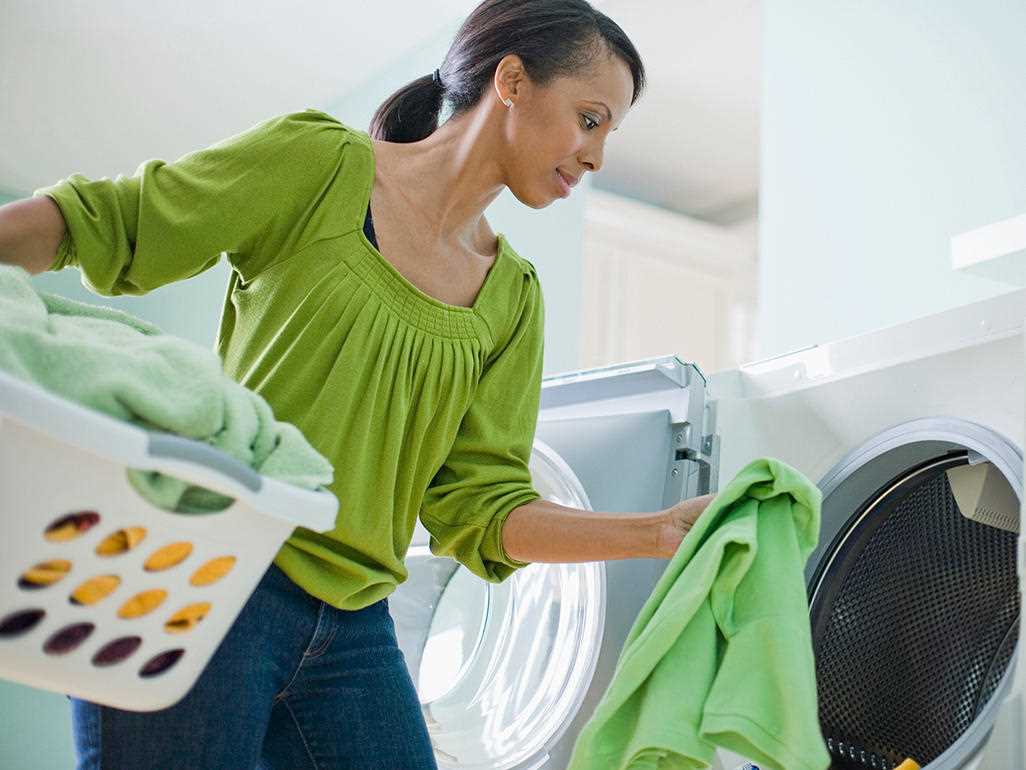
Keep a few essential items, such as clean diapers, wipes, and burp cloths, close to the newborn clothes. This will make it convenient for you when dressing and changing your baby.
By following these steps, you can ensure that your newborn’s clothes are clean, safe, and ready to use once they arrive. Plus, it will save you time and stress during those first few weeks with your new baby.
Washing newborn clothes before the first use
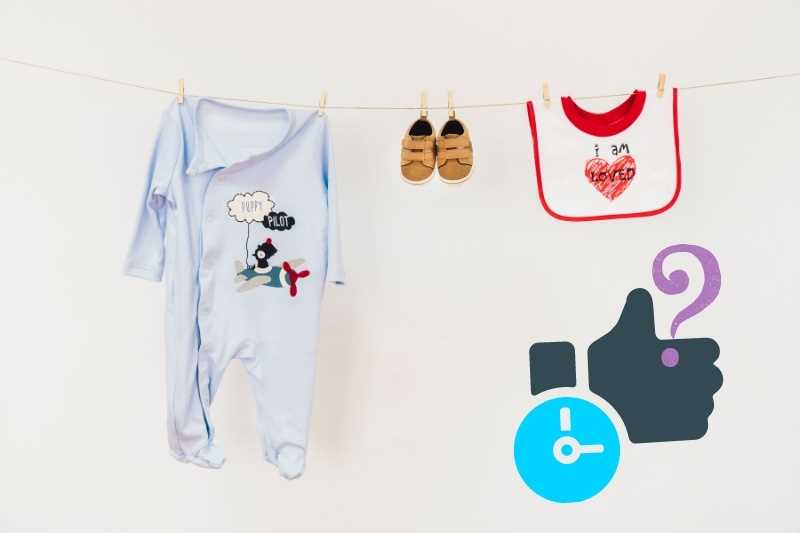
It is important to wash newborn clothes before the first use to ensure they are clean and free from any irritants or chemicals that may have come into contact with them during the manufacturing and shipping process. Washing clothes before they are worn is a common practice for individuals of all ages, but it is especially crucial for newborns, whose skin is delicate and easily irritated.
Here are a few reasons why washing newborn clothes before the first use is essential:
- Removes chemicals: Newborn clothes often undergo various chemical treatments, such as starching, dyeing, or adding flame retardants. These chemicals can be harsh on a baby’s sensitive skin and may cause irritation or allergic reactions. By washing the clothes before putting them on your baby, you can eliminate these chemicals.
- Removes dirt and dust: During the manufacturing and shipping process, newborn clothes can accumulate dirt, dust, and other particles. Washing them cleanses the clothes and ensures they are fresh and hygienic for your baby.
- Softens the fabric: Sometimes, newborn clothes can have a stiff texture due to the manufacturing process. Washing them helps to soften the fabric, making it more comfortable for your little one.
- Eases any fabric shrinkage: Some clothes may shrink a little when washed for the first time. By washing newborn clothes before use, you can prevent any unpleasant surprises, ensuring that the clothes fit your baby properly.
How to wash newborn clothes:
When washing newborn clothes, it is crucial to use a gentle detergent that is suitable for sensitive skin. Here are some steps you can follow:
- Sort the clothes by fabric type or color to avoid color bleeding or damage.
- Pre-treat any stains with a stain remover. Rub the stain gently with the stain remover or apply it directly to the stain and let it sit for a few minutes before washing.
- Use the appropriate water temperature for the clothes, following the instructions on the care label. Generally, a cool or warm water setting is recommended.
- Choose a gentle or baby-specific detergent that is free of harsh chemicals and fragrances. Add the detergent to the washing machine according to the manufacturer’s instructions.
- Wash the clothes on a gentle cycle to protect delicate fabrics and minimize any damage.
- After washing, hang the clothes to dry or use a low-heat setting on the dryer. Avoid using high heat, as it may damage the fabric.
By washing newborn clothes before the first use, you can ensure that your baby has clean, soft, and safe garments to wear. It is a simple step that can contribute to your baby’s comfort and overall well-being.
Frequency of washing newborn clothes
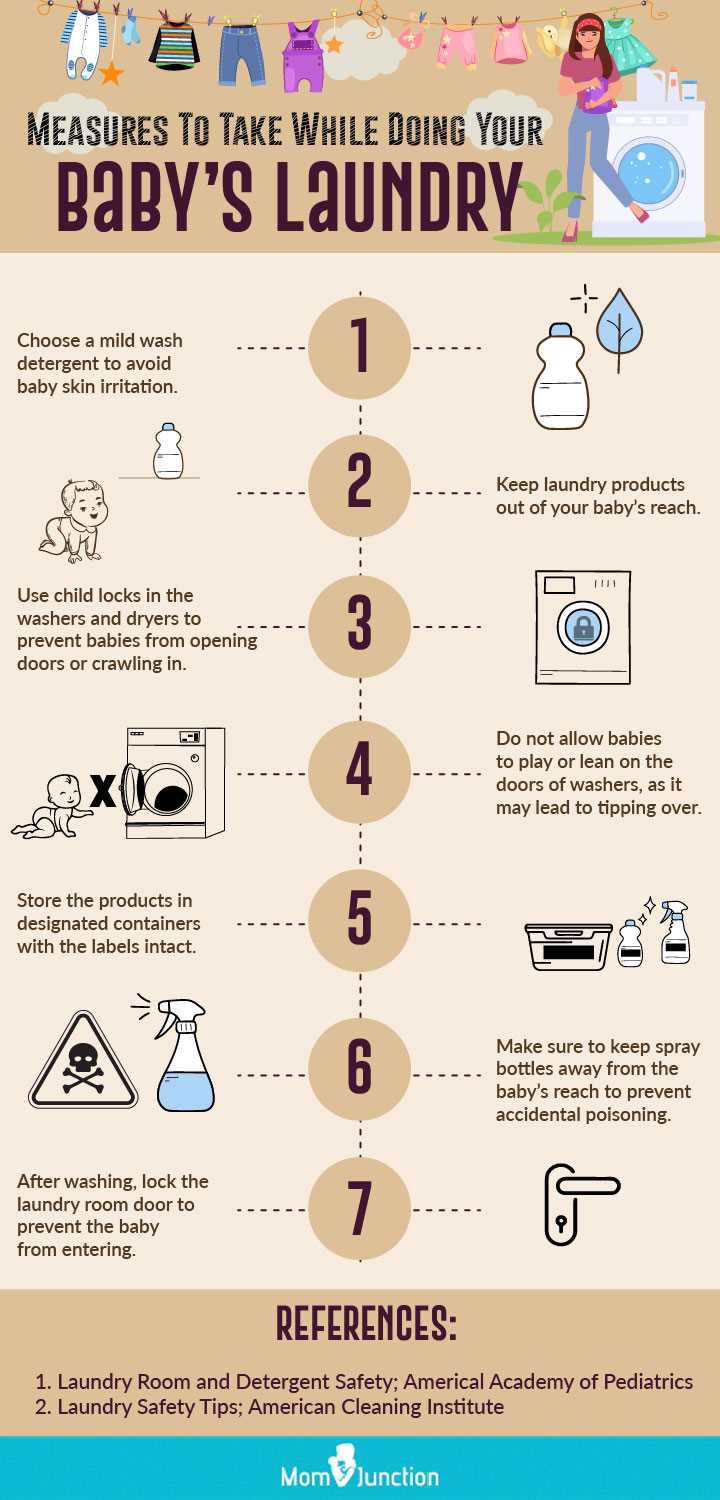
- Newborn clothes should be washed before they are worn for the first time.
- It is important to wash newborn clothes after each use.
- During the first few months, babies tend to have frequent spit-ups, diaper leaks, and drooling, which can soil their clothes quickly.
- Washing newborn clothes regularly helps to remove any dirt, bacteria, or allergens that may have accumulated.
- For newborns with sensitive skin, it is recommended to wash clothes using a gentle and hypoallergenic detergent.
- It is also important to wash baby blankets, burp cloths, bibs, and other accessories frequently, as they come in contact with the baby’s skin and may become soiled or contaminated.
- If your baby has any skin conditions or allergies, it may be necessary to wash their clothes more often to minimize any potential irritants.
- Dirty clothes should be separated from clean clothes to avoid cross-contamination.
- Storing dirty clothes in a separate laundry hamper or bag can help maintain hygiene and prevent odors from spreading.
Tips for washing newborn clothes
Washing newborn clothes requires special care to ensure the safety and comfort of your little one. Here are some tips to help you keep your baby’s clothes clean and fresh:
- Separate the clothes: It’s important to separate your baby’s clothes from the rest of the laundry to avoid cross-contamination. Use a separate laundry basket or hamper for your baby’s clothes.
- Pre-soak stained clothes: Before washing, pre-soak any stained clothes in a mild detergent. This will help remove the stains effectively without damaging the fabric.
- Choose a gentle detergent: Use a mild and fragrance-free detergent specifically designed for baby clothes. Avoid using harsh chemicals or fabric softeners, as they can cause irritation to your baby’s sensitive skin.
- Wash in cold water: Set your washing machine to a cold water cycle when washing newborn clothes. Hot water can shrink and damage the delicate fabric.
- Avoid overloading the machine: Overloading the washing machine can prevent the clothes from being cleaned properly. Make sure to leave enough space for the clothes to move around and be thoroughly washed.
- Dry in a gentle cycle: When drying newborn clothes, use a gentle cycle or hang them to air dry. Avoid using high heat settings, as they can shrink or damage the fabric.
- Iron at low heat: If required, iron your baby’s clothes at a low heat setting. Be extra careful when ironing delicate fabrics, as they can easily be damaged.
- Store properly: Once the clothes are clean and dry, store them in a clean and dry place. Use plastic storage containers or zip-lock bags to protect them from dust and pests.
- Inspect before use: Before dressing your baby in freshly washed clothes, make sure to inspect them for any loose threads, buttons, or other potential hazards that could pose a risk to your baby.
By following these tips, you can ensure that your baby’s clothes are clean, safe, and ready to be worn. Remember to always read and follow the care instructions on the clothing labels for best results.
FAQ
When should I start washing newborn clothes?
You should start washing newborn clothes before the baby arrives. It is recommended to wash them around two weeks before the due date.
Should I use a special detergent for newborn clothes?
Yes, it is recommended to use a mild and hypoallergenic detergent for newborn clothes. This helps to prevent any skin irritations or allergies.
How often should I wash newborn clothes?
Newborn clothes should be washed frequently, as they can quickly become soiled. It is recommended to wash them after each use, especially if there are any spit-ups, diaper leaks, or stains.
Can I wash newborn clothes with the rest of my laundry?
It is best to wash newborn clothes separately from the rest of your laundry, especially during the first few months. This helps to avoid any possible contamination from other clothes, detergents, or fabric softeners.
Is it necessary to iron newborn clothes?
It is not necessary to iron newborn clothes, as they will usually get wrinkled again after the baby wears them. However, if you prefer to have them wrinkle-free, you can iron them on a low heat setting.
How often should I wash newborn clothes?
It is recommended to wash newborn clothes before they are worn for the first time, and then wash them after every use. Newborns have sensitive skin and washing the clothes helps remove any irritants or chemicals that may be present. Additionally, washing the clothes helps to remove any dust or bacteria that may have accumulated during storage.











